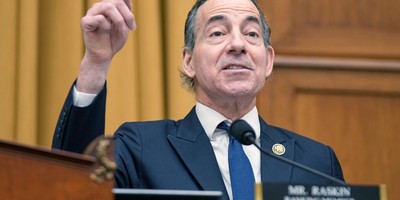There is lots of foreign policy analysis in the latest issue of WORLD Magazine, so it's a good time to remember the "illusion" a talented writer spotted a century ago—and how the supposed illusion took 20 million lives within a decade, and 50 million more a third of a century later.
I'm referring to a writer once celebrated, now forgotten: Norman Angell, author a century ago of Europe's Optical Illusion, which he expanded in 1910 into The Great Illusion, a book that sold 2 million copies and garnered translation into 25 languages.
Angell (1872-1967), one of six children born into an English middle-class family, grew up reading Voltaire, Darwin, and John Stuart Mill. At 17, convinced that Europe's problems were too many to untangle, he headed to America. For the next seven years he dug ditches, chased cattle, prospected for gold, delivered mail, and became a reporter for the St. Louis Globe-Democrat and then the San Francisco Chronicle.
Deciding to give Europe another chance, he returned there in 1898 and worked on newspapers in England and France until 1912, concluding from his reporting that Europe and the world would never again suffer through a great war. The reason: Nations had become so financially and economically interdependent that swords would inevitably become plowshares.
James Madison had written in The Federalist Papers that "if men were angels, no government would be necessary." The early 20th-century equivalent was that if men were as rational as Norman Angell, no wars would be fought. Angell made it clear in the preface to The Great Illusion that nations became rich through industry and trade, so "military and political power give a nation no commercial advantage." He wrote that "it is an economic impossibility for one nation to seize or destroy the wealth of another, or for one nation to enrich itself by subjugating another."
Recommended
His book optimistically proclaimed that warfare "belongs to a stage of development out of which we have passed." He argued that "the commerce and industry of a people no longer depend upon the expansion of its political frontiers; that a nation's political and economic frontiers do not now necessarily coincide; that military power is socially and economically futile." He was seeing the first stages of economic globalization.
But Angell's analysis left out something important. In Hamlet, Horatio is a model of rationality, doubting the existence of anything beyond the natural. Hamlet then explains to him, "There are more things in heaven and earth, Horatio,/ Than are dreamt of in your philosophy." Angell ignored the realities of human nature and satanic evil. He asked why anyone would go to war when it was clear that both victors and vanquished would suffer. He should have asked why some leaders would not go to war, given the omnipresence of sin and the tendency of leaders to overrate their prospects.
World War I showed that Angell's no-wars forecast was wrong but his wars-beggar-all prediction was right. In 41 years Angell published 41 books showing that war made no sense: Among them, his The Fruits of Victory (1921) showed the rotten fruit of World War I, and his The Great Illusion: 1933 showed that a World War II would be equally unproductive.
All that writing along with his activism—Angell was a Labor member of Parliament and on the Executive Committee of the League of Nations Union—garnered noble Angell the Nobel Peace Prize in 1933, the same year that Adolf Hitler came to power in Germany. He could not believe that mankind, "in blind obedience to primitive instincts and old prejudices, enslaved by the old catchwords," would go to war. He noted that a new war, "if it could avail us anything, would condemn the nations of the world to never-ending bloodshed and the constant defeat of all those aims which men, in their sober hours, know to be alone worthy of sustained endeavor."
The key words were "in their sober hours." Original sin, though, makes men drunk. Hitler hollered for war and others responded. Today, despite all the rationality of today's Angells, devilish dictators still demand war, showing us once again two realities: that we cannot now beat our swords into plowshares, and that our only hope to do so some day lies in Christ's return.

























Join the conversation as a VIP Member